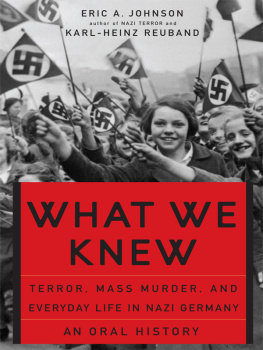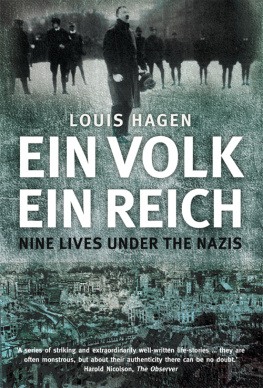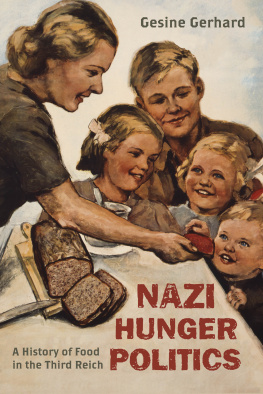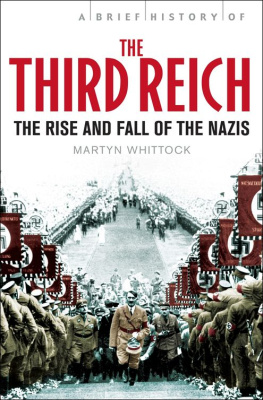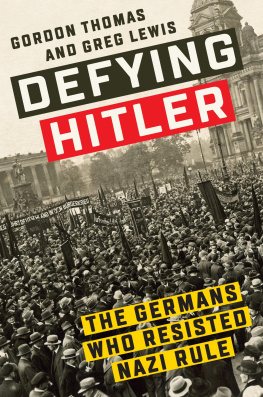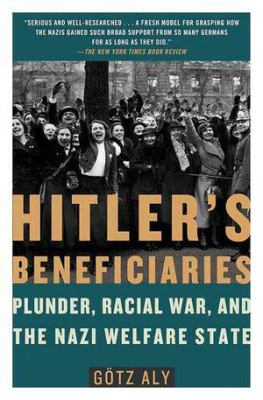Index
Aachen
Adler, David
Adler, Director
American Psychological Warfare division
Andover Star
Antifascist press
Anti-Semitism
before Hitler
beginnings of
in Berlin
Catholic communities and
Cologne and
in commercial settings
in contemporary Germany
Der Sturmer newspaper
first years of Hitler's rule
forced policies of
Germany vs. other nations
"Jews as Germany's enemy,"
in Munich
in Poland
social isolation
Anti-Semitism/Jewish survey age and
community size and
family treatment by non-Jews (before/after 1933)
gender and
help from Germans
Hitler/Nazi influence on
increase with time
Jews' differing views on
non-Jewish neighbors' relation with Nazi Party
overview
time in Germany and
types of persecution
Anti-Semitism in school Benson's story
Falter's story
Gottfrieds' story
Hertz's story
Jewish schools and
Jewish survey
Levin's story
Liffmann's story
Rosenthal's story
Weisner's story
Antwerp
enforcement of anti-Semitic laws in
Jewish emigration and
Arendt, Hannah
Assimilation by German Jews
Auschwitz
administration of
Benson's story
civilians at
description
first transports to
gas chambers of
German criminals and
Grunewald's story
Hertz's story
Holz's story
Klein's story
knowledge of
Landau's story
Levin's story
Liffmann's story
Mahler's story
Mendel's story
Schiller's story
Schwartz's story
surviving at
Weinberg's story
Weisner's story
Auschwitz III
Autobahn building
Balfour, Lord
Bankier, David
BBC
accuracy of
detector and
Engel's story
German belief in
Germans listening to
Grolsch's story
Grunewald's story
Hassel's story
Kuhnel's story
Levin's story
mass murder information from
Schiller's story
statistics on Jewish listeners
BDM (League of German Girls)
Belgium
Germany's invasion of
Jewish emigration and
Bellamonte concentration camp
Belmonte, Ana Perez, xviii Benson, William
Berg, Helmut
Bergen-Belsen
Berkowitz, Max
Berlin
anti-Semitism of
communist resistance in
contemporary Berlin
deportations from
Hildebrand's story
Jews in hiding
Jews in hiding (Hirsch)
Jews in hiding (Schwartz)
as Protestant
resistance in
Rudolf's story
Russian forced laborers/camp in
Socialist/Nazi Party fighting in
Berlin Gymnasts Association
Berlin's Center for Research into Anti-Semitism
Bielitz-Schielitz
Birkenau
Blackouts
Block leaders
Blomberg, Werner von
Boycotts
of Jewish stores
of non-Jewish German stores
Brazil
Breslau
Bruchsal prison
Brzezinski, Zbigniew, xiii Bucharest
Buchenwald
administration of
American liberation of
Grunewald's story
Hertz's story
knowledge of
liberation of
political prisoners and
Schwartz's story
Weisner's story
Calabria concentration camp
Campania
Catholics/Catholicism
as anti-Nazi
Center Party
concordat with Hitler
euthanasia program and
fear and
mass murder knowledge
Sanders' story
Social Democratic Party and
Catholic youth organizations
Cell leaders
Center Party
Children's transport
Chile
China
"Cleansing measures,"
See also Mass murder
Collections in Germany
Cologne
anti-Semitism and
as Catholic
deportations from
Lutz and
Communist resistance
in Berlin
in Stettin
Communists
concentration camps and
in Dresden
German Communist Party (KPD)
German fear of
Jews in hiding and
opposition of
surveillance of
Communist youth sports association
Concentration camp knowledge
after Kristallnacht,
before Kristallnacht,
by German citizens
by German military
from German soldiers on leave
as "model rehabilitation facilities,"
by Polish citizens
released inmates and
See also specific camps
Concentration camps
communists and
handicapped and
in Hohenstein castle
Jewish bones and
Leib's story
for Nazi enemies
for political opposition
skulls from
as Stalag
stealing Jewish property and
volunteers for
world knowledge of
See also specific camps
Cossacks
Crimea mass shooting
Crime prevention and Hitler
Cuba
Czechoslovakia
Dachau
atrocities of
Emmerich's story
Hirsch's story
knowledge of
liberation of
Rudolf's story
Stone's story
Death march
from Auschwitz
escape from
Denouncement of Germans
anonymity of
Engel's story
false accusations
by family members
by friends
Walters's story
Denouncement of Jews
description/examples of
Lutz's father/Nazi Party and
school teachers and
survey findings/statistics
Deportations
beginnings of
from Berlin
from Breslau
cities deported from (overview)
from Cologne
deception with
description
destinations (overview)
"factory action,"
to France,
from Frankfurt
German knowledge of
Jews knowledge of
from Krefeld
Kristallnacht and
from Leipzig
from Mannheim
from Nuremberg
"openness" of
resistance/escape and
as secret
survey information/Jews
survey information/non-Jewish Germans
transport trains
Depression
Der Sturmer newspaper
Dictators, The (Wells)
Die Fichte
Dimitrov
District Show Group of Saxony
Dresden
boycott in
communists of
forced labor in
Jews and economy of
Jews leaving
as Protestant
resistance in
social democrats of
spas and
East Prussia
Eichmann
Einsatzgruppen
Electrocution
Emigration of Jews difficulties of
end of
Kristallnacht and
Nazis attitude towards
overview
papers for
statistics on destination
countries
Emmerich, Albert
Engel, Effie
England
children's transport to
Jewish emigration and
Estonia
Euthanasia program
"Factory action,
Falter, Ekkehard
Fear
before Kristallnacht
bombing raids and
Holz's story
Landau's story
Liffmann's story
Lutz's story
Mendel's story
race defilement and
those opposed to Hitler
Upper Silesia
See also Denouncement; Spying
Fear/Germans (non-Jewish) survey
age and
arrest initiation causes
arrest outcomes
arrest reasons
arrest statistics
caution in talking
by city
control and
denunciations
early political opposition and
education and
gender and
Gestapo
Gestapo statistics
illegal activities involvement and
law against political libel/slander
overview
religion and
spies and
torture
Fear/Jewish survey age and
Catholic communities and
caution in talking
community size and
gender and
illegal activities involvement
increase with time
police persecution/Jews

